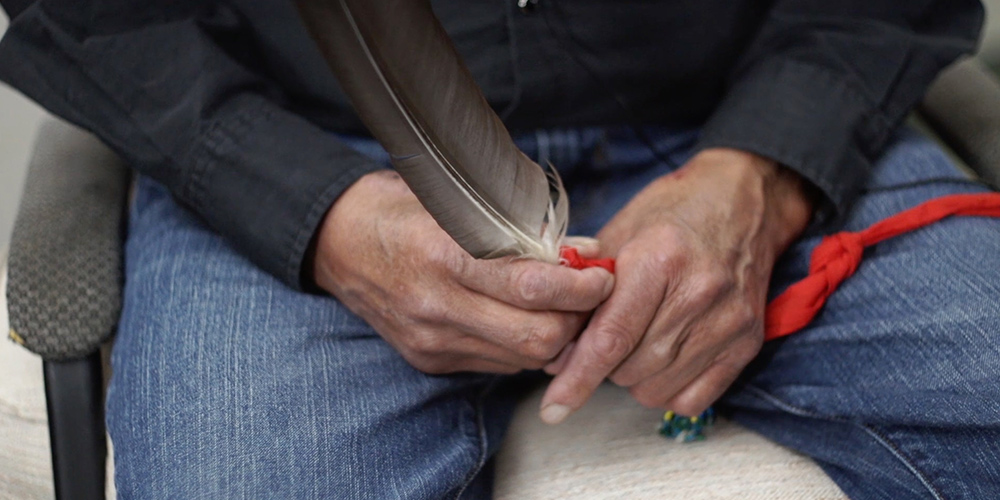Reelworld 17 Review: In Jesus’ Name: Shattering the Silence of St. Anne’s Residential School
A necessary but incredibly difficult film to watch
Funded by the Canadian government, St. Anne’s Residential School operated between 1932 and 1976. In Susan G. Enberg’s latest documentary, survivors from the school recount the horrific abuse they experienced during their childhoods. Her film, In Jesus’ Name: Shattering the Silence of St. Anne’s Residential School, closes the Reelworld festival.
Physically and sexually tortured, indigenous children were treated with unending violence at the hands of the religious leaders at St. Anne’s. In addition to poor living conditions (one man recounts being forced to eat horse meat which still had hair on it, as well as the ensuing vomit), survivors recount how they were beaten, molested, and raped. The abuse is extreme, including the use of a home-made electric chair upon the children, and is told bluntly by the survivors themselves. By film’s end, the documentary states that while some faculty were charged and convicted of crimes against the children, most received minimal sentencing. What also comes to light is that in recent and on-going compensatory hearings for those who attended St. Anne’s, the Canadian government withheld an enormous amount of evidence of horrific abuses against the children of St. Anne’s, potentially compromising outcomes for many St. Anne’s survivors, most of whom are now elderly. The Canadian government has even more evidence of abuses in its possession that it refuses to release to the survivors and their legal counsel unless court-ordered to do so.
In Jesus’ Name is, in its own way, almost unwatchable. But this is not the fault of the film: it is the fault of the residential schools upheld for too long by the Canadian government. To hear about the intense abuse inflicted upon children by powerful pedophiles is horrific, but to know about this history of Canadian violence, as well as its lasting effects and legacy, is infinitely important. Enberg’s film is a straightforward documentary, with little more than talking heads of the survivors themselves, and some historical documentation. This is to the film’s benefit. Giving as much space as possible to the survivors and their trauma, the film is respectful, informative, and straightforward. Enberg allows their voices to take precedence, never bogging them down with cinematic gimmicks or a need for an auteurist flair: she may be the director, but it is the film of the survivors. Though impossible to ever enjoy, In Jesus’ Name covers a part of Canadian history that must be remembered, and rectified.




